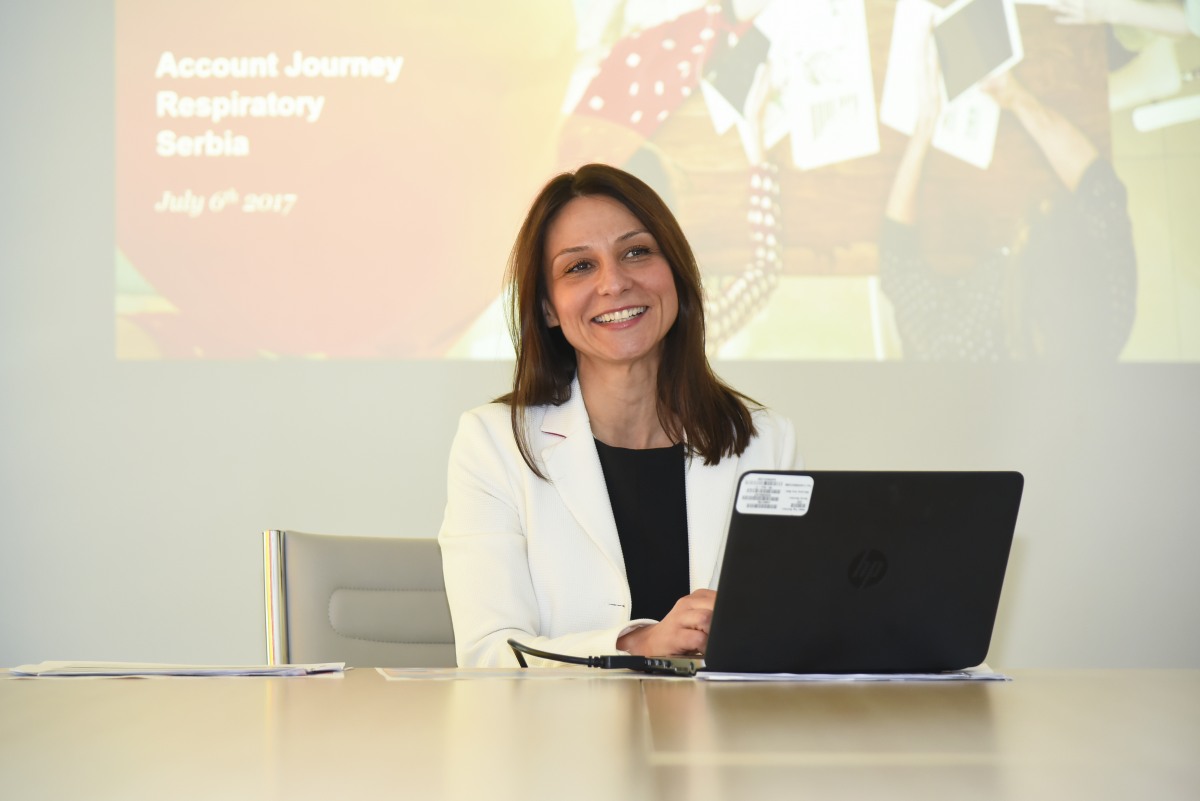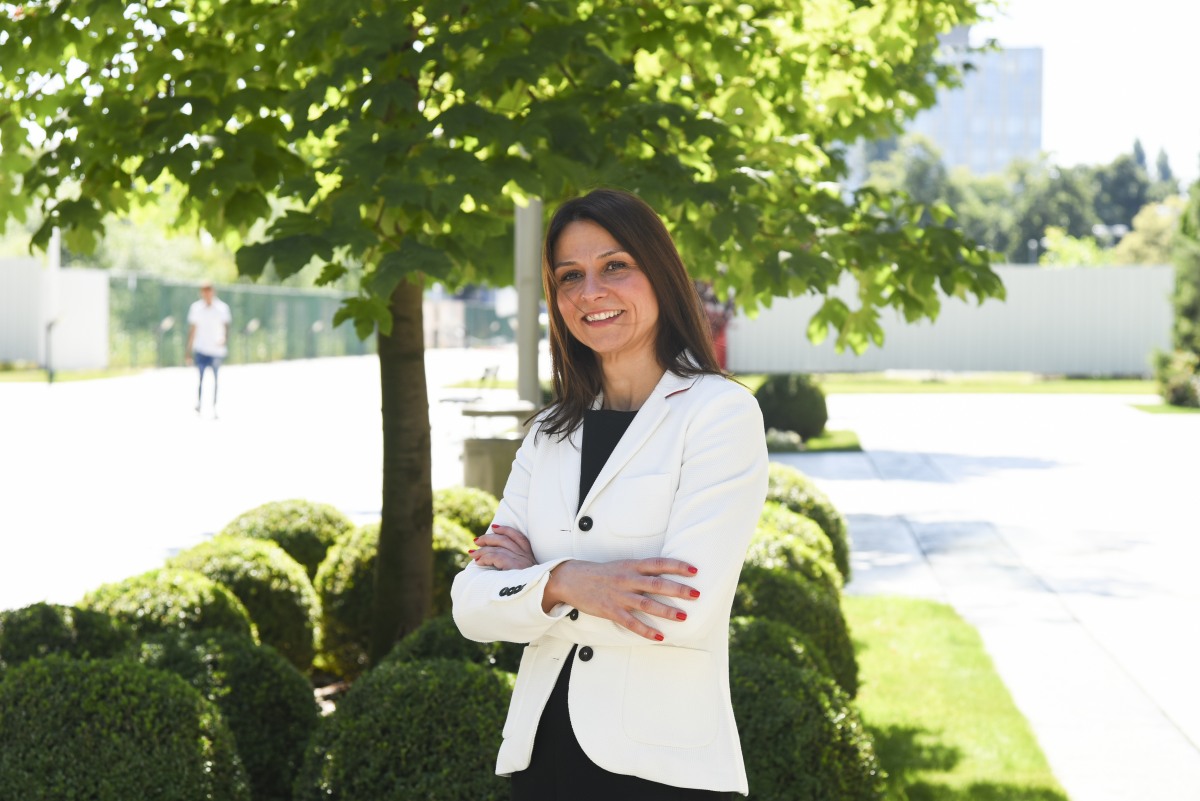As a global company, which operations contribute to better health of millions of people worldwide, we should demonstrate our innovative approach also through cooperating with the local community, while considering having a wider reach and forging partnerships that could bring long-term health benefits to our fellow citizens and the environment

Innovation is at the core of our company, both globally and in Serbia. GSK focuses solely on meeting the patient needs, and is committed to discovering new treatments and ways to prevent illnesses. There are over 13,000 scientists working towards discovering and developing new drugs or vaccines by using the most advance scientific resources. This is a complex process that lasts between 12 and 15 years with substantial investments of over 500 million British pounds in one new drug alone.
How available are GSK’s innovative drugs to patients in Serbia?
› Easy availability of innovative drugs for patients is very important, because, according to the data collated by the OECD, innovative therapies contribute to longer life expectancy and lower mortality more than any other factors. When we look at the big picture, population’s health is also closely related to the productivity of the entire nation, and, in turn, to a country’s economic growth. This is why the chapter on healthcare is one of the key chapters in Serbia’s accession talks with the EU. Last year, the Health Insurance Fund of Serbia has extended to include more innovative drugs for patients which was a step forward towards health treatments in Serbia becoming more like those in the European Union and in developed countries in terms of the availability of the latest therapies. We are encouraged by the fact that, in regard to the quality of its healthcare Serbia has advanced among European countries over the period of last two years according to the Consumer Healthcare index. I expect this positive trend in Serbia to continue so that we can keep up with the global innovative standards in the quality of provided treatments.

In which healthcare areas in Serbia is GSK the most active?
›During more than two decades of our operations in Serbia, we have helped patients here to have access to latest therapies thanks to our very diverse portfolio – we are leaders in treating respiratory diseases and HIV, in addition to immunization. Furthermore, we are present in treatment of systemic infections, lupus, rare diseases, nervous and urolgenital diseases. We also produce Consumer Healthcare products. Panadol, Coldrex, Sensodyne, Paradontax, Aquafresh and others are just some of our leading brands in Serbia. As the recognized leader in treating respiratory diseases, and thanks to our long tradition in providing successful treatment for asthma and chronic obstructive pulmonary disease, we are eager to see the launch of our innovative therapies in September which could significantly contribute to improving the quality of life of the patients with respiratory diseases. Additionally, our innovative therapy for HIV is now available on prescription.

In regard to his, we have had significant global scientific advances that could substantially better the quality of life of the people with HIV. How does GSK promote preventive therapies?
› I understand the state’s interest in investing long-term in preventive activities and its population’s health which is demonstrated through adoption of rele-vant healthcare laws in the segment of infectious disease protection. In the following period, and following the adoption of the relevant bylaws covering this segment, we expect to draw closer to the developed European countries and thus improve access to modern vaccines. As the global leader in immunization, our company is willing to support initiatives in this area. Apart from providing beneficial vaccines and therapies, we are also implementing a programme called Positive Partnership in Serbia which provides support to people with HIV through facilitating a multi-sectoral access and assistance to numerous programmes and initiatives in local communities. GSK has also been actively participating in various campaigns which goal is to raise public awareness and informing medical community about the importance of a healthy lifestyle, prevention, early diagnostics, and timely treatment of illnesses that are typical for Serbia.
You are also very active in volunttering and other CSR activities. Could you tell us something about the most important campaigns you participated in last and this year?
›It gives me a great pleasure to see how long-term efforts and investments by our company in CSR have been recognized by the local community. GSK has been acknowledged for its corporate social responsibility initiatives and volunteering of our employees in the local community, as evidenced by 10 prestigious awards we have been given in the last five years. With the goal of contributing as much as possible to advancing the health of our popoulation and helping in areas where the needs are the biggest, we have forged long-term partnerships with institutions and numerous organizations. We have launched a three-year programme with the UNICEF called „Together for Better Health“, focusing on health of the Roma children. The aim of this partnership is to improve access to healthcare services, hygiene, nutrition, immunization and early stimulation of children and positive parenting practices in the Roma communities. Apart from working with the Roma population, we have also forged a partnership with the Save the Children organization in order to support the state in its efforts to mitigate the consequences of the migrant crisis and help the children from refugee families. This support also entails setting up the Mothers and Babies Corner and the Children Corner in Belgrade, as well as our employees volunteering in the migrant reception centres. For this partnership our company
was given two awards – the Serbian Chamber of Commerce’s National Award for Social Responsibility, and SmartKolektiv’s Award for Corporate Volunteering. I believe that improving the healthcare environment has a much wider reach than providing innovative therapies alone. As a global company, which operations contribute to better health of millions of people worldwide, we should demonstrate our innovative approach also through cooperating with the local community, while considering having a wider reach and forging partnerships that could bring long-term health benefits to our fellow citizens and the environment in which we live and work. <